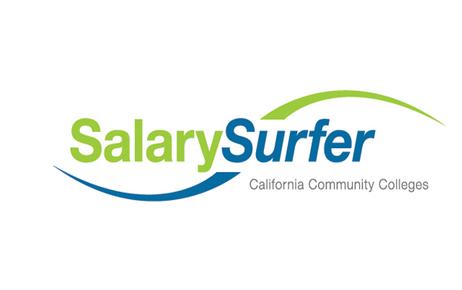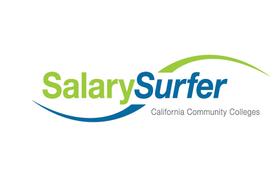Students entering the California Community College system will now have another tool to help them choose a degree program and motivate them to complete that program. Through a new online tool, California students will be able to see how much they can earn with the various degrees offered through their school. The tool was recently unveiled by the California Community College Chancellor’s Office.
Introducing Salary Surfer
The new website, dubbed Salary Surfer, allows students to track a person’s potential salary in California for five years after earning a two-year degree. The site uses data from graduates across the state, to compile significant information that can help students choose the best degree program for them. The Huffington Post reports that Salary Surfer shows the median annual incomes for 179 of the most popular community college programs in the state.
The website does not include data on students that transfer to four-year institutions. It does not have information on federal employees or self-employed graduates. Graduates that move out of state are also not included in the salary averages listed at Salary Surfer.
EdSource reports that Salary Surfer is the first online database of its kind in the state. The website tracks average annual salaries for the various programs two years after graduation, and again five years after graduation. Students can see how much they might expect to make in their discipline and compare that to what they were making prior to graduation. They can also see the type of growth potential they can expect from their chosen field.
This video shows how Salary Surfer works in the accounting field.
The Value of a Community College Education
U.S. News and World Report cites numbers on Salary Surfer that show nearly 45 percent of students earning an associate degree in California earned an annual salary exceeding $54,000 five years after graduation. That annual figure is the average annual salary for all California residents that hold a bachelor’s degree. Statistics on the website also showed that some students graduating from a community college with either an associate degree or a certificate could earn $90,000 or more after five years.
The general numbers could offer hope to California residents living at or below the poverty level, by showing them what their earning potential might be if they pursue higher education. The data also shows the overall value of a degree in the current labor market. College leaders are also hoping the new tool will change the overall perception of community colleges as the weak link in California education.
“The motivation behind this is very simple,” Brice Harris, chancellor for the California Community College system, told EdSource. “We want to restore the access and we want to dramatically improve the success of students in our colleges.”
Comparing Earning Potential
In addition to showing the general value of a community college education, Salary Surfer can also help guide students into the right degree program based on the earning potential of individual degrees and certificates. It doesn’t take long perusing the Salary Surfer tool to discover that value can vary greatly from field to field. For example, students who earn an associate degree in nursing may see an above-average entry salary grow significantly over the first five years. At the same time, fields like journalism and dental laboratory technology may actually decrease in salary amount over those early years.
When a student goes into the Salary Surfer website, he will have the choice of entering a number of different field options, from agriculture and natural studies to engineering and technology. Many basic disciplines are included in the tracker as well, such as:
- Psychology
- Social Sciences
- Business and Management
- Computer and Information Science
- Fine and Applied Arts
- Education
- Health
- Communications
A number of sciences are also included in the mix, including physical, biological, and environmental science. Once the student chooses a discipline, a new window appears with the many degree specializations in that field. In some cases, there might be a relatively small number of degree programs under a heading, such as foreign language or biological sciences. Others, like health, business, and computer science, may have much longer lists of specialties.
This video complements the Salary Surfer data in the agricultural field.
Tracking for Seven Years
For each specialty, the Salary Surfer tool offers three average salary amounts. The first is what students can expect to make two years prior to earning an associate degree in their field. The next shows the average annual salary two years after completion of the degree program, and the third shows the average annual income five years from the completion date.
The tool provides valuable information not only about the value of a community college degree in general but the earning potential for various fields of study students might be considering. This information could be a deciding factor for some students who are on the fence between two or more similar fields and unsure which specific path to follow.
“While future earnings should not be a sole determiner in choosing an educational program, students and the public deserve to know what monetary return they can expect on their investment,” Chancellor Harris told U.S. News.
This video complements the solar energy program in the California Community Colleges.
Salary Surfer is another component that will be used to improve completion rates at community colleges across the state. In April, the California Community College system launched its first “Student Success Scorecard,” which provided valuable information about individual community colleges in the state. The information told students which schools had the highest completion and transfer rates, in addition to other pertinent data about individual schools. Now, Salary Surfer can be combined with the scorecard to present students with more complete information about the community college experience to promote greater student success across the state.
Questions? Contact us on Facebook. @communitycollegereview











